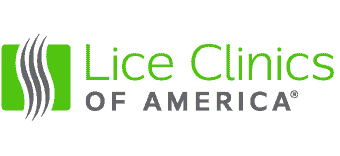Remember to Look Out for Head Lice This School Year
There are a lot of things that you might look forward to your child taking home from school this year; good grades, fun projects, new friends. One thing you definitely don’t want them taking home? Head lice.
Outbreaks of head lice are fairly common in schools and daycares, where the pests can easily be spread from one child to the next. It’s a good idea to know the signs and symptoms of lice, so that you can treat any new infestations as soon as possible. Knowing what to watch out for will help you catch the problem before it has a chance to spread to other members of your family. Here are a few things to look out for as your child returns to school this year:
Itchiness
One of the biggest symptoms of head lice is, obviously, an itchy scalp. Of course, there are many other things that can cause itchiness, such as dandruff, allergies, or just dry scalp from the changing weather. There’s no need to jump to conclusions, but if your child is scratching their head more often and complaining of an itchy or tingly scalp, you may want to check for lice.
Sores and Scabbing
Kids tend to scratch harder than necessary when they have an itch, and they can end up injuring themselves in the process. In the case of head lice, children may even scratch throughout the night without realizing it. If you suspect head lice, check your child’s scalp and hairline for sore spots, scratch marks or scabs that have been caused by excess scratching.
Loss of Sleep
The itchiness caused by lice can be persistent, and the constant discomfort will probably disrupt your child’s sleep schedule. If your child has a hard time getting asleep or staying asleep due to itching, there’s a good chance that head lice are to blame.
Irritability
If your child has head lice, they’ll probably be more irritable than usual, and it’s no wonder why. Not only are they feeling itchy and uncomfortable, but they aren’t getting enough sleep either – and that’s enough to put anybody in a bad mood. Before chiding your child for having a bad attitude, check to see if there’s a cause behind all of that crankiness. If you notice that they have all of the other symptoms mentioned, that cause might be head lice.
As we’ve mentioned before, an itchy scalp may be caused by a number of things, so it’s important to confirm that head lice are the problem before deciding on a plan of action. You can do a preliminary lice check by looking along your child’s hairline and base of the neck, to see if you can find any visible bugs.
Lice can be hard to see just by looking, so the best way to detect them is with a louse comb. Simply run the comb through your child’s hair a few times, wiping it off on a paper towel after each swipe to see if it’s removed any lice or eggs.
Once you have confirmed that your child does indeed have a case of head lice, don’t panic. As annoying and frustrating as they are, lice don’t pose any serious health risks and they are fairly easy to get rid of with the right treatment.
Your child will have a lot to think about at school, so don’t let a case of head lice be at the forefront of their mind. To help make this a great school year for them and you, contact us at Lice Clinics of America today for more information on finding, treating, and eliminating head lice.










